Foods that Provide The Most Potassium
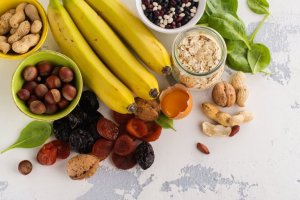
When you’re told that you should consume more potassium, you probably automatically think of bananas. However, there are other foods that also contain this nutrient. So, you won’t get bored of always eating the same thing in order to get the optimal levels of this mineral that takes part in many of the body’s functions. Find out which foods provide the most potassium here.
What is potassium and what does it do?
Basically, potassium is a diuretic mineral that’s in charge of eliminating excess liquids and salt from the body. Therefore, a lack of potassium causes water retention, edemas and hypertension.
If you consume a lot of salt or you don’t drink enough water throughout the day, it’s fundamental that you eat foods that contain this nutrient.
A serious potassium deficit can cause considerable health problems such as nervous system damage, kidney damage or heart complications.
Thanks to this mineral, the cells are well hydrated, healthy and nourished because it also helps with the elimination of toxins.
The mineral of choice for athletes

Potassium is extremely important when it comes to exercising and practicing sports. Because of this, it’s normal to see athletes (like tennis players) eating a banana in the middle of a match, or before or after a competition.
Potassium provides energy and replenishes the liquids and electrolytes that we lose when we perspire. Also, it helps with the transmission of nervous impulses and is necessary for muscle contraction and recuperation after exercising.
As if that wasn’t enough, this nutrient is great for people with cardiac problems or hypertension, since it regulates cardiac rhythm and arterial pressure, while also preventing arrhythmia.
Another benefit of a diet that’s rich in potassium and low in sodium is that it protects your kidney health by improving blood transportation and allowing a better blood filtration. Plus, it also prevents the formation of kidney stones.
Read also
Of course, there are more benefits of this mineral:
- It’s also an excellent antioxidant that binds to free radicals and makes them inactive.
- In addition to that, it helps to prevent bone demineralization and osteoporosis by counteracting calcium elimination through urine.
- Lastly, potassium also works to produce gastric juices. These take part in certain metabolic processes such as insulin secretion and balancing the body’s liquids.
Which foods provide the most potassium?
Daily potassium intake should be between 3000 and 4000 mg in adults.
It’s good to know that, in their natural state, all foods have more potassium than sodium. However, when they undergo certain treatments, this relationship changes.
Because of this, we should increase our intake of the first kind of food and decrease the second. How? Through a balanced diet featuring some of the following potassium-filled foods:
1. Chard
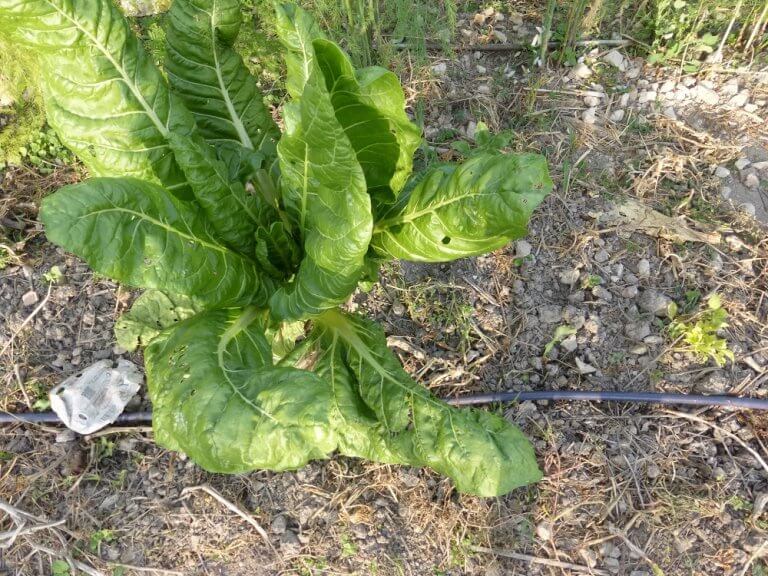
First of all, this delicious vegetable has a lot of vitamins and you can eat in various ways, such as cakes, soups or sandwiches.
- It’s one of the vegetables that provide the most potassium. Every 100 grams (raw) contains 380 mg.
- Keeping in mind that one cup of chard is approximately 200 grams, it’s not that difficult to add it into our daily diet.
2. Avocado
This fruit has a great amount of magnesium, fiber, vitamin E and potassium. Plus, it has a positive effect on the nervous system, heart and skin.
- It’s ideal to help with anxiety, depression and insomnia.
- It also reduces anemia, alleviates the symptoms of gastritis or ulcers and decreases menstrual pain.
Read also:
3. Cherimoya
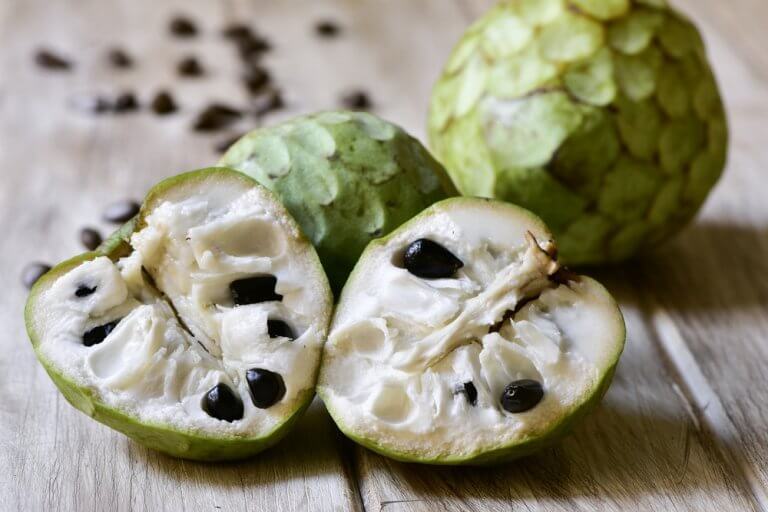
This tropical fruit is one of the most complete fruits that exists. It has dozens of medicinal properties and every 100 grams provides us with 382 mg of potassium.
- You can eat it as a dessert or combined into a sweet treat.
- Cherimoya also contains proteins, calcium, iron, phosphorus and vitamins B1, B2 and B6.
4. Thyme
Many aromatic herbs are rich in potassium. In the case of thyme, it’s very popular in the Mediterranean cuisine. Plus, it also contains essential thymol oil, flavonoids, amino acids, calcium, iron and vitamin C.
It treats infectious illnesses in the respiratory system, it’s a very potent natural antibiotic, it increases your defenses, gets rid of indigestion and it’s anti-inflammatory (making it ideal for reducing menstrual pain).
5. Marian thistle
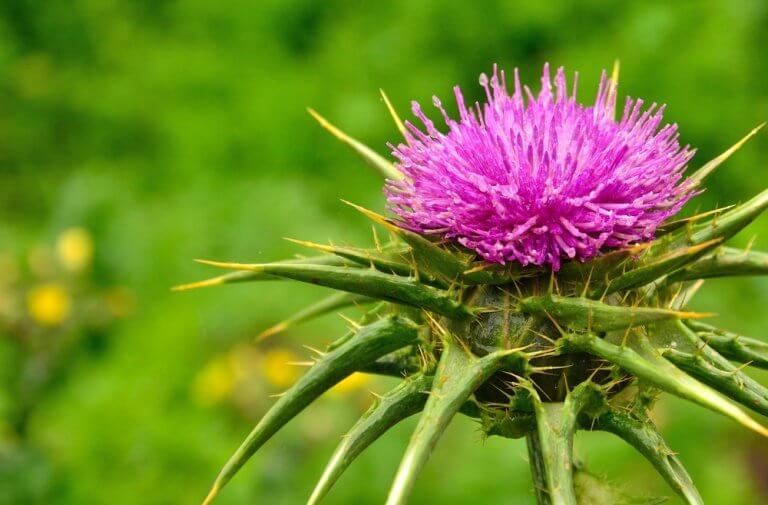
This plant, native to the Mediterranean and Central Europe, has been used as a medicine for centuries. It:
- Treats chronic gallbladder and liver conditions.
- Lowers blood sugar
- Stops the formation of kidney stones
- Reduces cholesterol
- Is a potent vitamin complex that’s especially recommended for women after giving birth.
With every 100 mg of Marian thistle, you can get 400 mg of potassium.
Read also:
Milk Thistle: A Plant With Incredible Benefits
6. Basil
This is one of the spices that you may have to have in your kitchen to give your dishes both flavor and aroma.
Originally from India (but popular all over the world), basil is rich in flavonoids, vitamins B1 and E, essential oils and minerals like potassium.
Its properties make it:
- Antispasmodic (it calms stomach pain)
- Stimulant (it helps with digestion)
- Appetitive (it improves appetite)
- Antivomitive
- Anticoagulant
- Antihypertensive
7. Potatoes
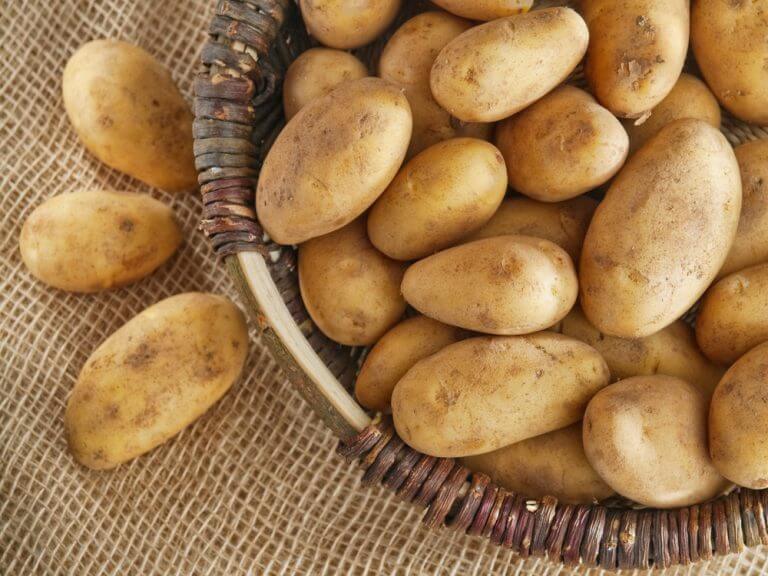
Finally, potatoes are a vegetable you can eat in a thousand different ways and they form a part of both the American and European diet. They’re also one of the vegetables that provide the most potassium.
Every 100 grams contains at least 418 mg of this mineral. We recommend you enjoy them steamed, boiled or baked and not fried or salted.
All cited sources were thoroughly reviewed by our team to ensure their quality, reliability, currency, and validity. The bibliography of this article was considered reliable and of academic or scientific accuracy.
- Murray D., Miller KC., Edwards E., Does a reduction in serum sodium concentration or serum potassium concentration increase the prevalence of exercise associated muscle cramps? J Sport Rehabil, 2016. 25 (3): 301-4.
- Elliott TL., Braun M., Electrolytes: potassium Disorders. FP Essent, 2017. 459: 21-28.
This text is provided for informational purposes only and does not replace consultation with a professional. If in doubt, consult your specialist.








